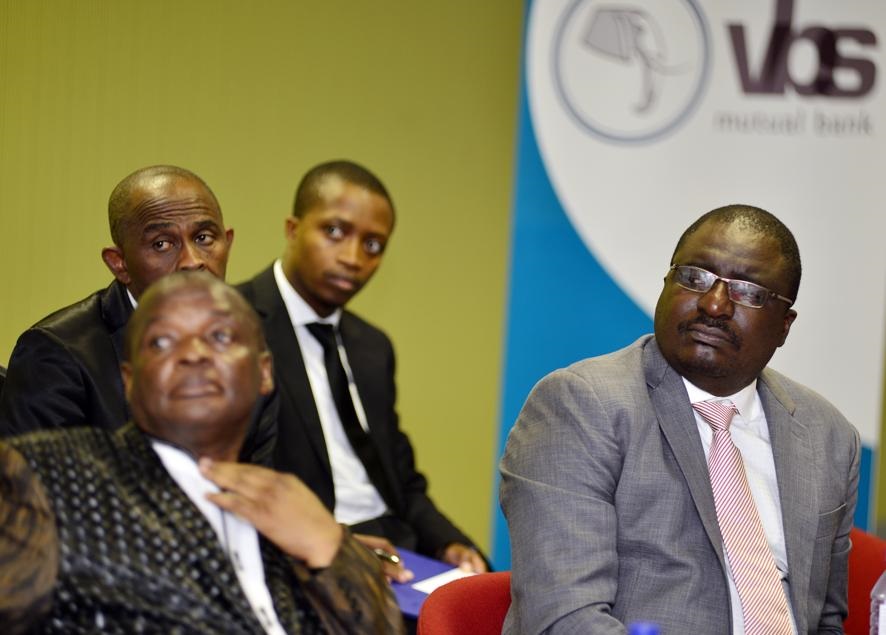
The fallout from the VBS scandal offers lessons for the future, writes Chris Maxon. SA needs to tighten regulatory control and boost financial inclusion and transformation
The Venda Building Society (VBS) fiasco, popularly known as the #VBSBankHeist, has not only exposed the depth of the rot in our society, but has also exposed the short arm of the regulatory and supervision framework in South Africa.
Banks have the potential to help fuel economic growth as well as raise people’s standards of living, self-realisation and financial inclusion.
Equally, we witnessed during the 2008 global financial crisis that banks can wipe out trillions in wealth around the world, bringing capital markets and economies to the brink of collapse.
That global financial crisis resulted in worldwide banking regulation reforms on different scales, with more stringent regulations on bank capital, liquidity and corporate governance structures being seen as the best way to restore the stability of financial markets.
Similarly, the fall of VBS Mutual Bank brings us back to ask fundamental questions to avert similar fiascos in the future.
But most importantly, given the low levels of banking – and financial inclusion – among the rural poor, it begs the following questions:
. Should banks not immediately address their high banking costs so as to attract the poor?
. Is our regulatory arm able to protect the poor in stokvels and burial societies from abuse and thuggery?
Bombi Mavundza (Business Insider SA, February 22 2018) suggests: “South Africans will save so much money through stokvels this year that they could buy Pick n Pay in cash and still have R10 billion left over.”
In his article, Mavundza reports that the pooled money in stokvels is “truly mind-blowing”.
He states: “Some R44 billion is collectively saved in 820 000 stokvels in South Africa.
"That means that, together, the members of these savings vehicles could buy a number of South Africa’s biggest companies in cash, including Pick n Pay, which has a market value of R33 billion; Truworths, valued at R43 billion; or Netcare, valued at R38 billion.”
The cash flowing through these stokvels easily tops the annual cash flow of most of the biggest companies, including FirstRand and Vodacom.
According to research by the National Stokvel Association of SA, some 11.4 million South Africans are members of stokvels.
“Together they would form the second-largest province in the country,” Mavundza writes.
Today, 41% of the stokvels are banked and this has served to bring more people into the formal financial services sector by giving them access to other savings, investment and protection offerings – giving them financial inclusion.
Sadly, the fee structure of South African banks is up to four times higher than countries such as Germany, Australia and even India.
This is partly owing to the high operating costs of banks and the proliferation of cybercrime.
In 2015, cybercrime cost South African businesses approximately R5.8 billion and while all businesses have taken proactive measures to combat this threat, banks spend three times as much on information technology security as non-financial organisations of the same size, according to research conducted by the Boston Consulting Group.
Notwithstanding that more than 70% of adults have transaction accounts, only 24% make more than three monthly transactions such as withdrawals, deposits or card swipes.
Many people are willing to run the risk of loss and theft associated with cash to avoid the fees, resulting in more than 60% of all purchases being paid for in cash.
Underlying this is the deep mistrust of the formal financial sector, which is rooted in fears of exploitation.
Past abuses, such as the inappropriate marketing and selling of financial products, have shown that poor people are highly susceptible to rapacious commercial interests.
VBS, like stokvels, thrived on the mistrust that poor people have against banks.
And the only legacy – the bank’s motto is “Our heritage, your legacy” – that the poor are left with is unmet dreams and lost investments.
But there’s light at the end of the tunnel. The light is no illusion, the tunnel is. The tunnel is the illusion of despair, the illusion of being alone and the illusion of being lost.
The recent fiasco at VBS is surely going to cause a trust impasse that will take time and effort to resolve.
It may also lead people to making reckless investment decisions. At worst, we will soon witness “stokvel heists” at the deplorable level of VBS.
But in the VBS fiasco lie opportunities for the future.
Public-private partnerships can help move away from inefficient trust deficits and cash economies. Not only that, they are fundamental in creating investor confidence.
They demonstrate that governments are willing to invest as much as we are to make the partnership successful and support the concept of shared value for sustainable growth.
The importance of bringing more people into the financial system and its ability to enhance GDP growth, reduce poverty and create new market opportunities for the private sector cannot be overemphasised.
Achieving financial inclusion should be a critical milestone on the path towards realising radical economic transformation.
However, we urgently need a more innovative approach to financial inclusion. Sharpened or stringent regulatory frameworks by government that reach even stokvels, for example repealing the exemption of stokvels and burial societies from being licensed, may act as a catalyst.
Financial institutions also need to work together with the public and the informal sector.
At the same time stakeholders need to understand the preferences and unmet needs of consumers as well as the barriers they perceive in accessing financial services.
Importantly, digital technology alone is not a silver bullet; many different levers need to be pulled to achieve this goal.
Maxon is deputy manager of advocacy, communication and social mobilisation at the department of health in KwaZulu-Natal




 Publications
Publications
 Partners
Partners








